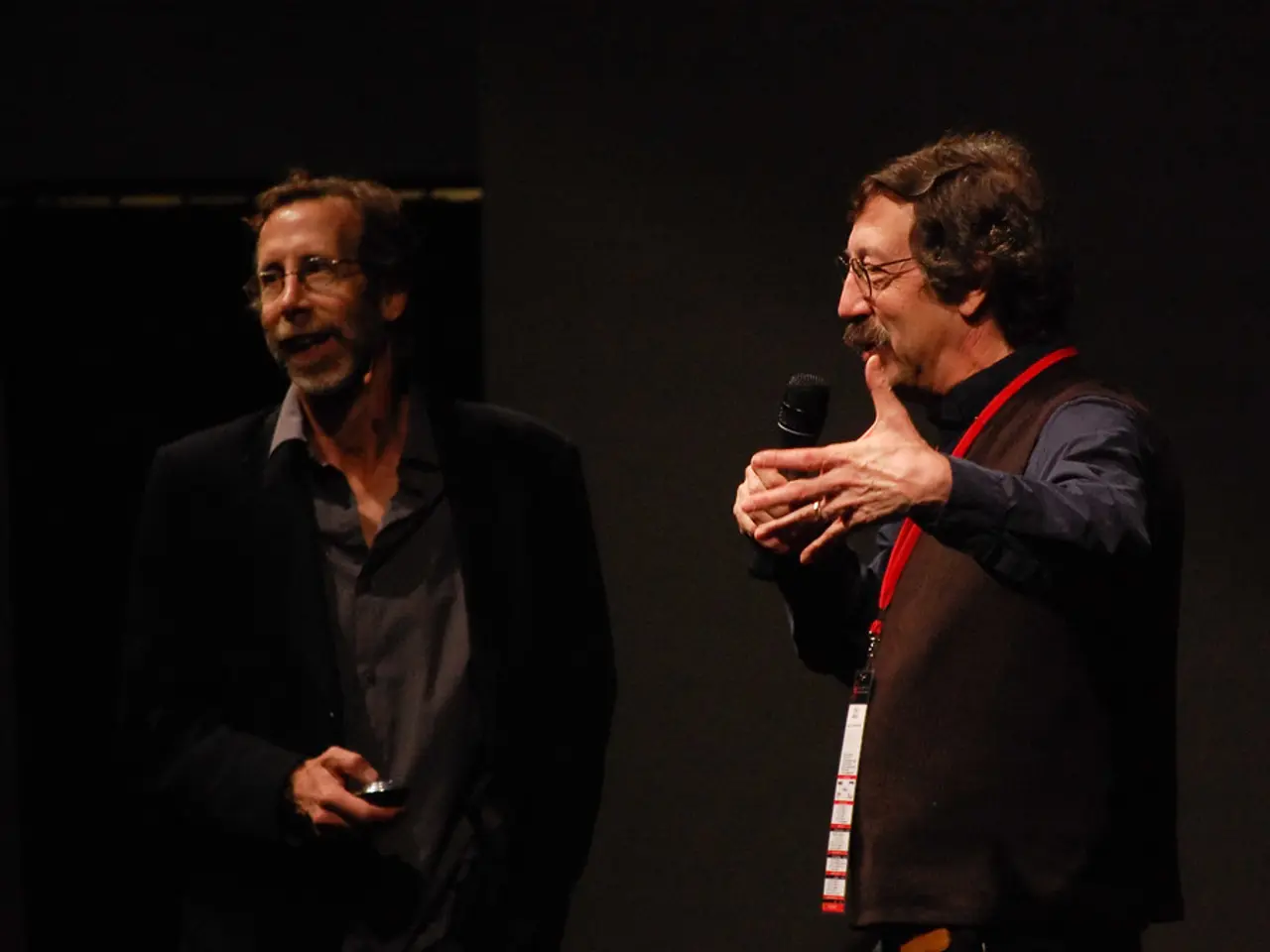Controversy swirls around the Language Formula in NEP, as G. Babu Jayakumar stirs up debate
Tamil Nadu, a state known for its rich linguistic and cultural heritage, has a long-standing opposition to the imposition of Hindi. This resistance, rooted in historical events and political sentiments, has shaped the state's political landscape and identity.
The controversy surrounding the PM SHRI project, running over Rs 2,000 crore, has become a point of contention between Union Education Minister Dharmendra Pradhan and Tamil Nadu political leaders. The resistance in Tamil Nadu to Hindi imposition can be traced back to the state's strong linguistic and cultural identity, political history, and fears of North Indian dominance.
After India's Independence, Hindi was adopted as the official language alongside English for 15 years. However, many non-Hindi-speaking states, led most forcefully by Tamil Nadu, opposed making Hindi the sole official language. This opposition culminated in direct action protests in the 1960s, marked by arrests of party leaders like C.N. Annadurai and tragic incidents such as the immolation of two youth members in 1965.
Violent agitations erupted in 1965 when the period of English as an associate official language was to end. These agitations subsided only after Prime Minister Lal Bahadur Shastri assured that English would continue indefinitely as an associate official language, effectively allowing Tamil Nadu to maintain a two-language policy (Tamil and English) instead of adopting Hindi.
Tamil Nadu's resistance to Hindi imposition is not just a linguistic issue but also a cultural one. The state views Hindi imposition as a form of North Indian cultural domination that threatens its unique Tamil identity and language heritage. The DMK capitalized on the anti-Hindi movement to rise to power in 1967, initiating decades of Dravidian political dominance in the state.
The dispute continues in issues such as education policies and language funding. Tamil Nadu historically rejected the central government's three-language formula (which included Hindi, English, and a regional language), choosing instead a two-language formula (Tamil and English) to preserve its linguistic heritage.
M.K. Stalin, the present Chief Minister of Tamil Nadu, warned of a language revolution in 2017 when a court ordered the opening of Navodaya Vidhyalayas in the State. The controversy has escalated into a blame game, with Pradhan accusing the Tamil Nadu government of reneging on its assurance to implement the project.
Despite Pradhan's criticisms and accusations, the DMK's political fortunes have not been affected. The party's political rise in Tamil Nadu, including its storming of Fort St George in 1967, was due to its opposition to Hindi imposition. Other BJP leaders, such as State president K. Annamalai, have accused the DMK of depriving poor students of an opportunity to learn Hindi.
The resistance to Hindi imposition has become deeply embedded in the collective consciousness of the people of Tamil Nadu. Despite some Hindi-speaking families and migrants in Tamil Nadu, the state generally opposes the three-language education policy or Hindi as a compulsory language.
Notably, Tamil Nadu students have achieved success in scientific establishments like the Indian Space Research Organisation and Google without learning Hindi. The agitation in Tamil Nadu put off the elevation of Hindi as the sole official language, which would have potentially ended the use of English.
In conclusion, Tamil Nadu's resistance to Hindi imposition is a complex issue with historical, cultural, and political dimensions. The state's opposition to Hindi imposition is a testament to its commitment to preserving its unique linguistic and cultural identity.
- The controversy over the PM SHRI project has led to disagreements between the Union Education Minister and Tamil Nadu leaders, as this project revolves around education-and-self-development and policy-and-legislation.
- The resistance against Hindi in Tamil Nadu derives from the state's strong linguistic and cultural identity, as well as its fears of war-and-conflicts (such as the incidents in the 1960s), which has shaped its politics.
- The general-news about Tamil Nadu students' achievements in scientific institutions like ISRO and Google highlights the success of learning-and-lifelong-learning without knowledge of Hindi, challenging the three-language policy often debated in policy-and-legislation.
- The online-education platforms may provide an avenue for Hindi learning in Tamil Nadu, contributing to cultural exchange and understanding, but the collective consciousness and identity of Tamil Nadu residents still predominantly oppose Hindi as a compulsory language.




